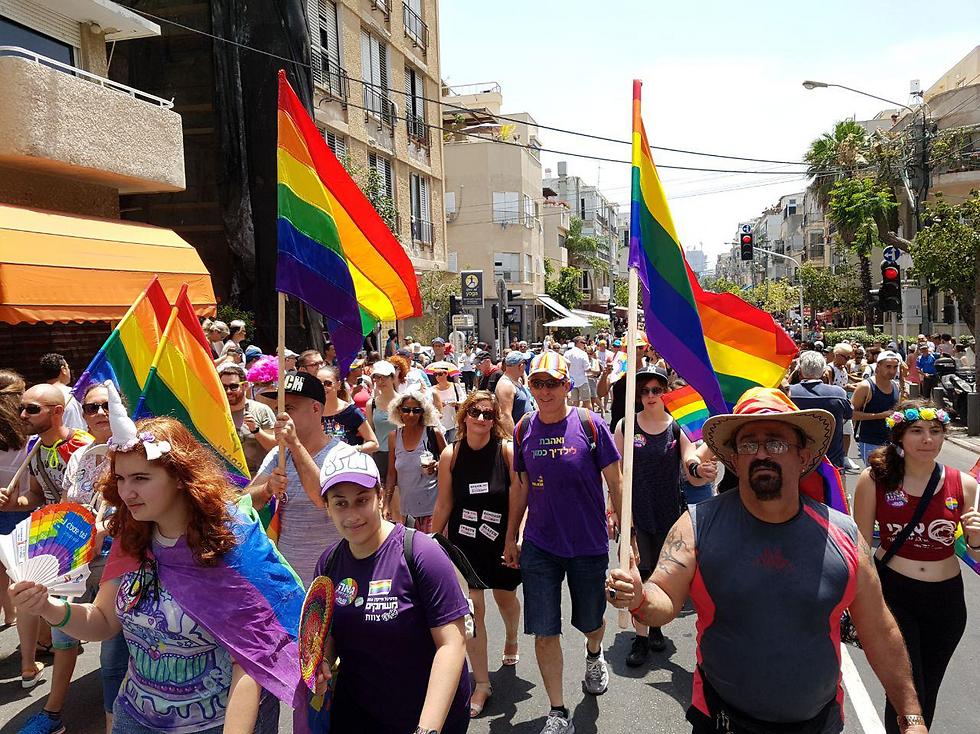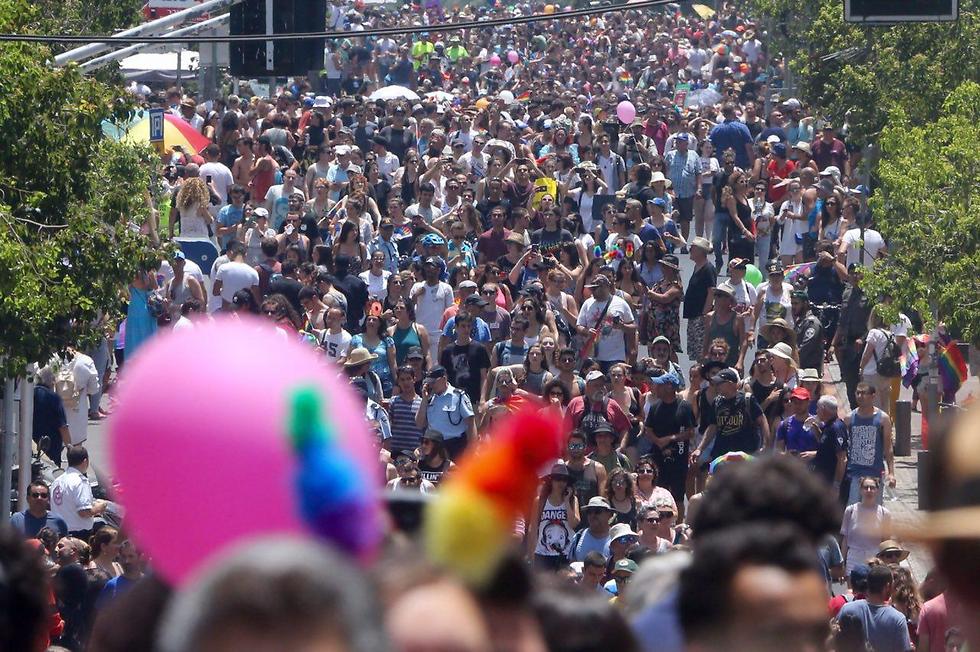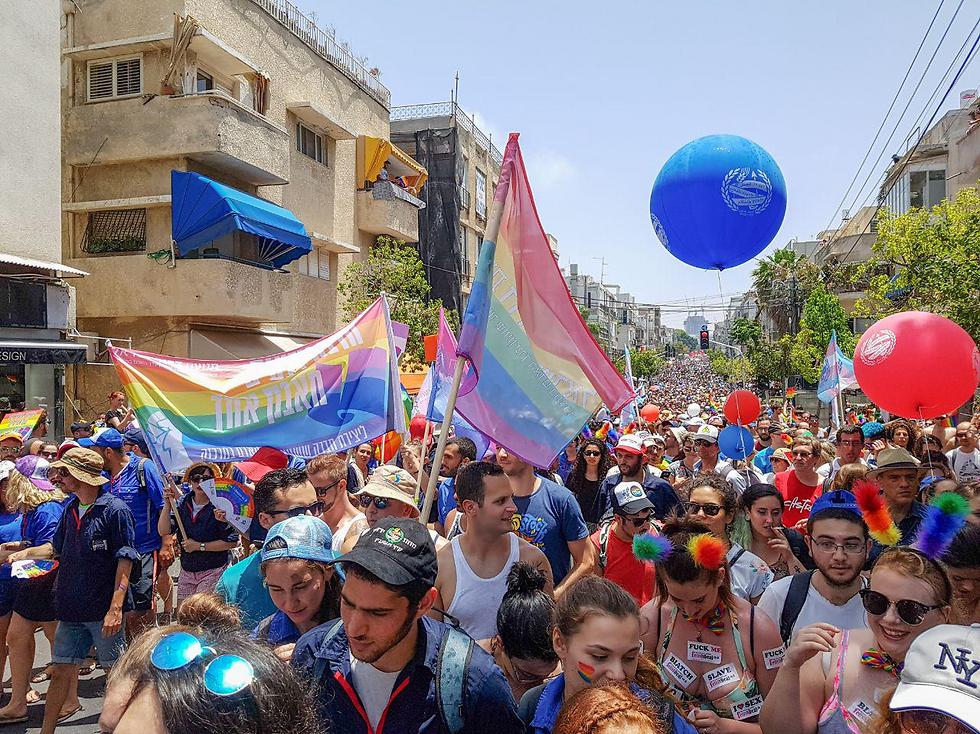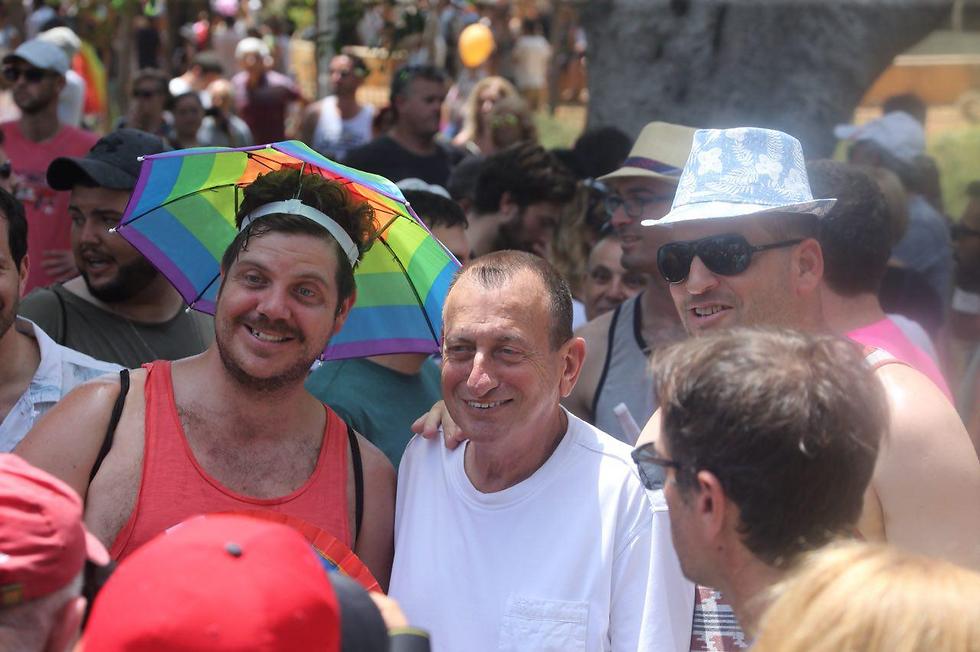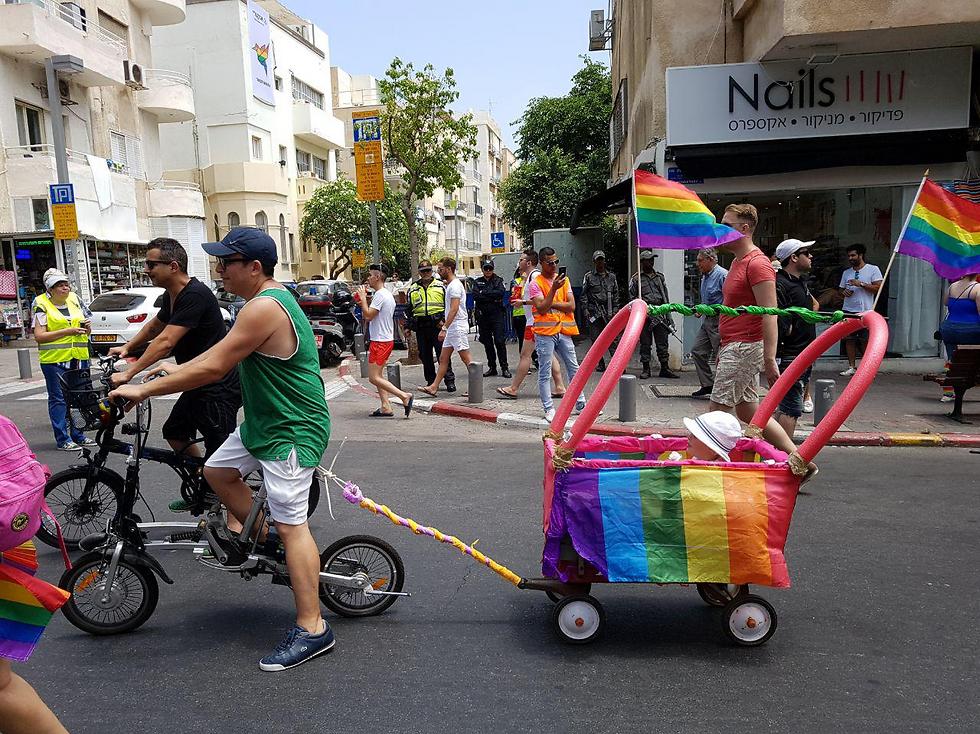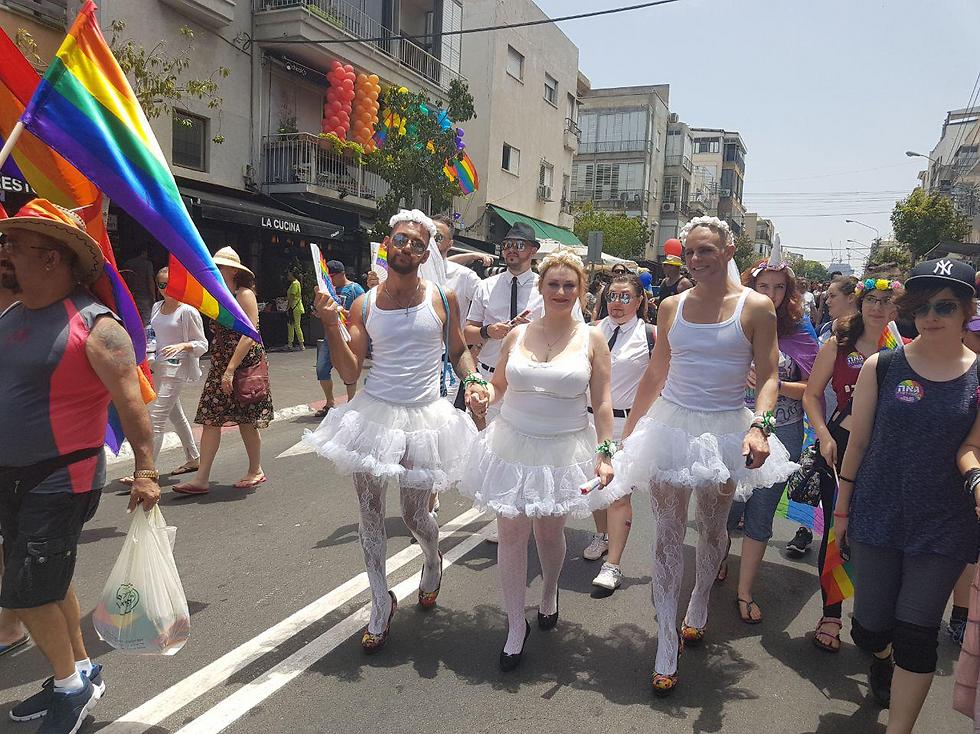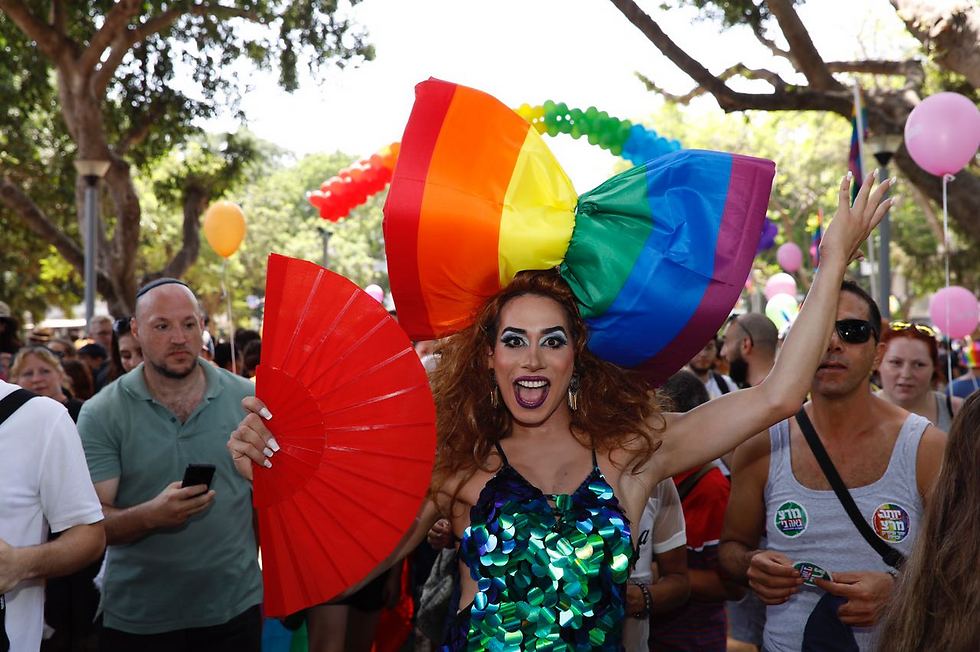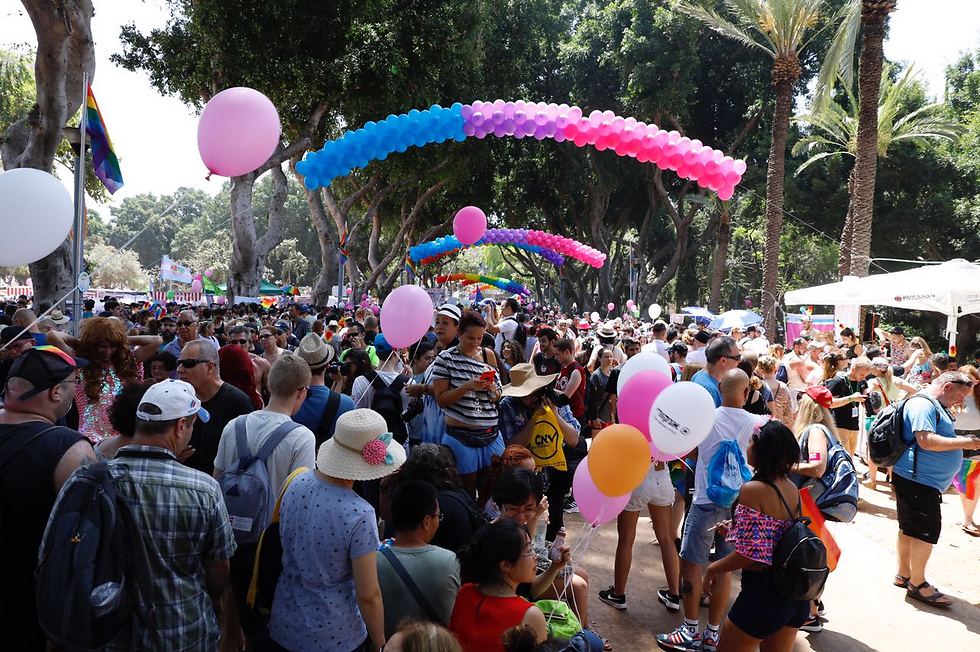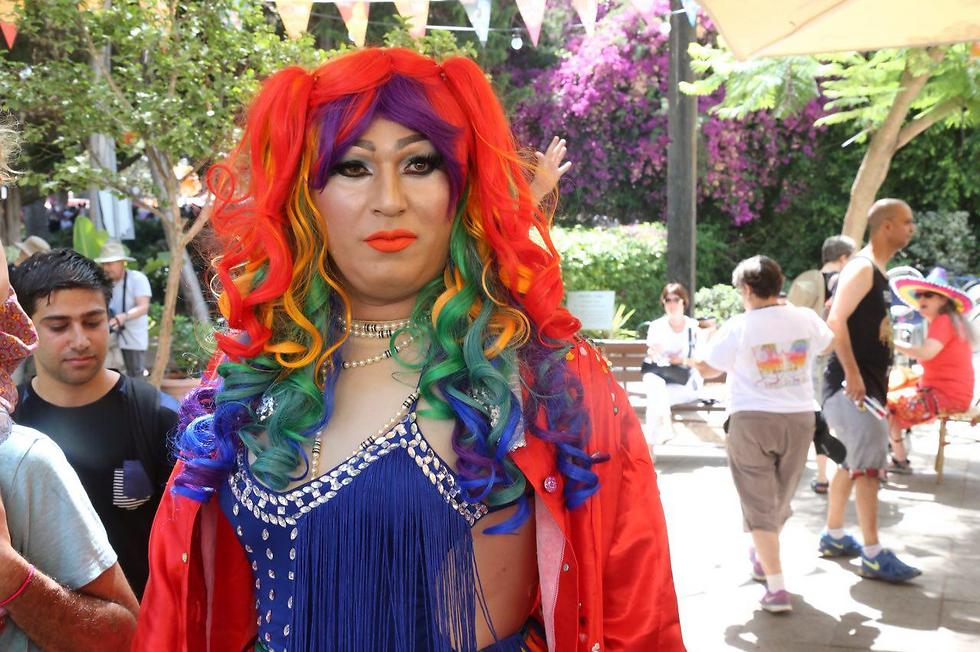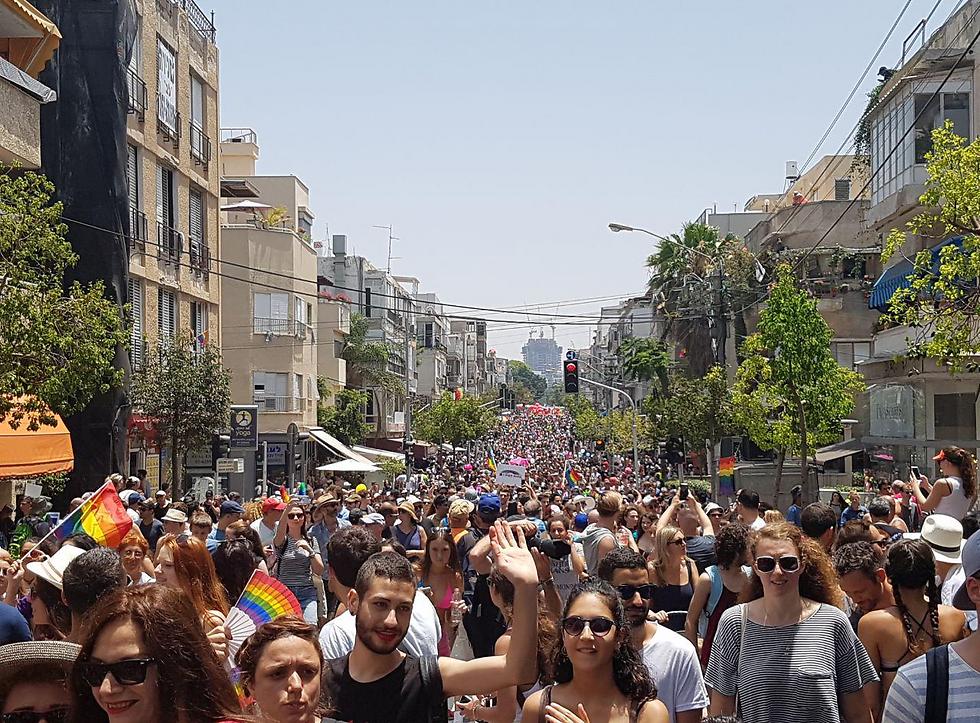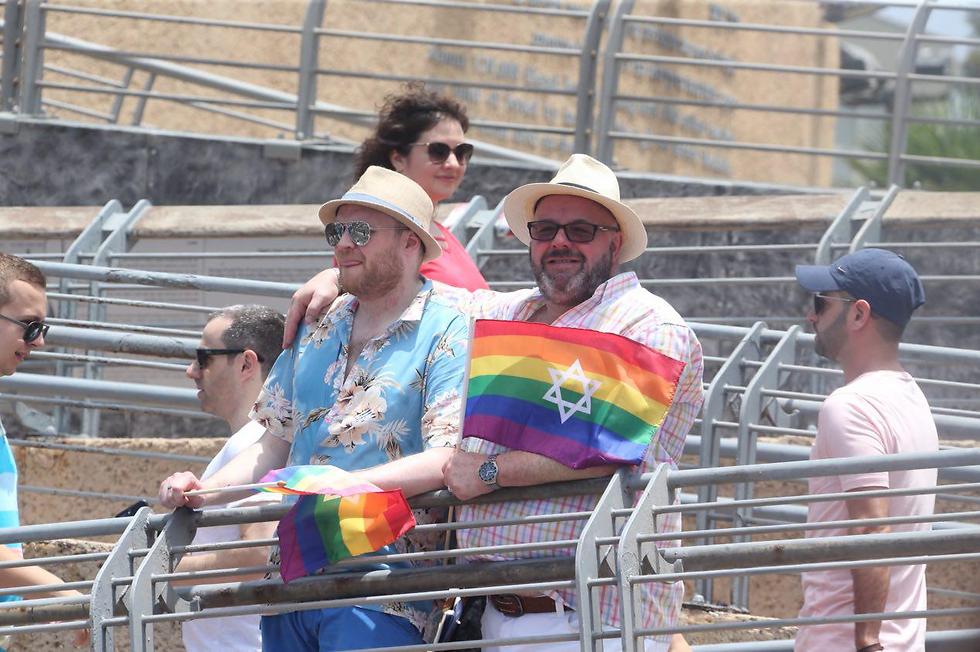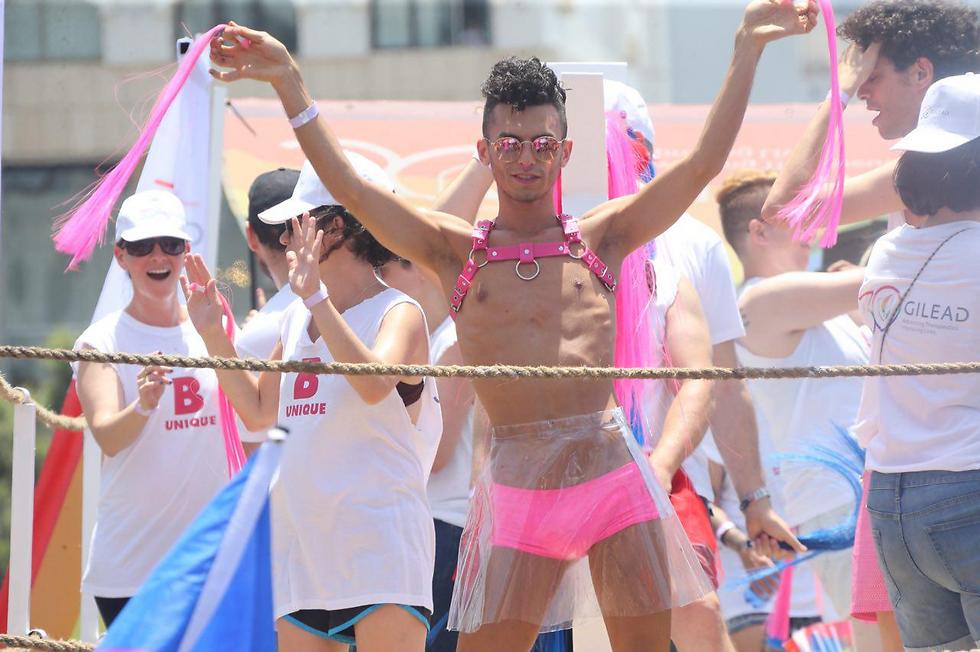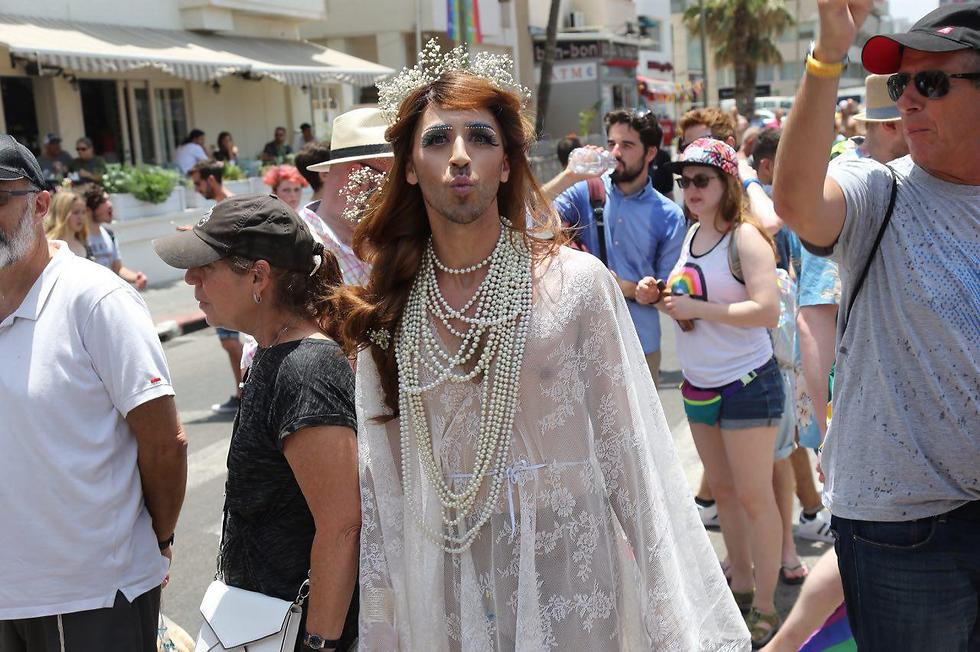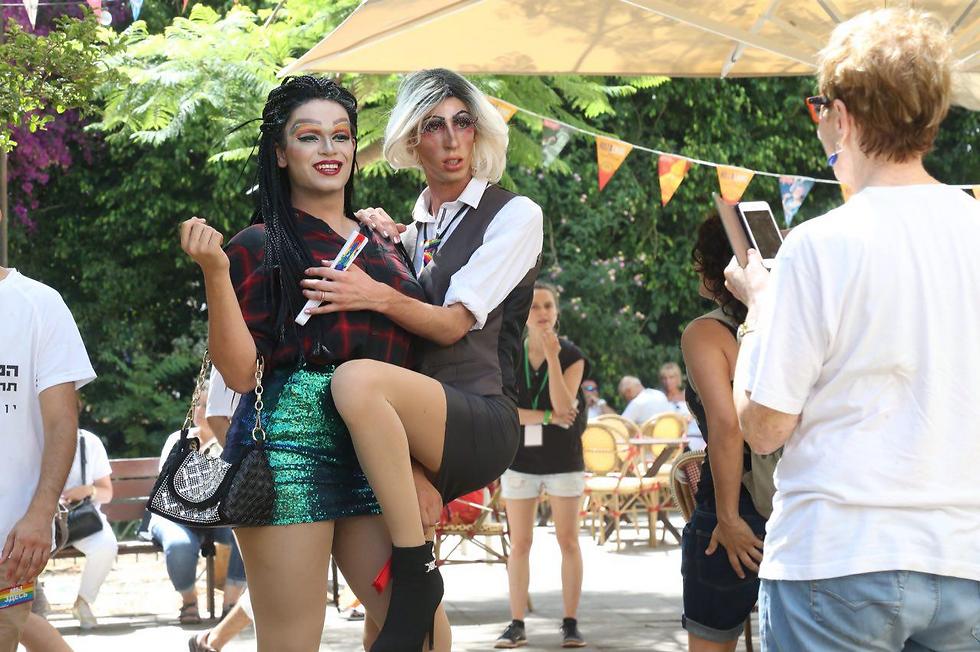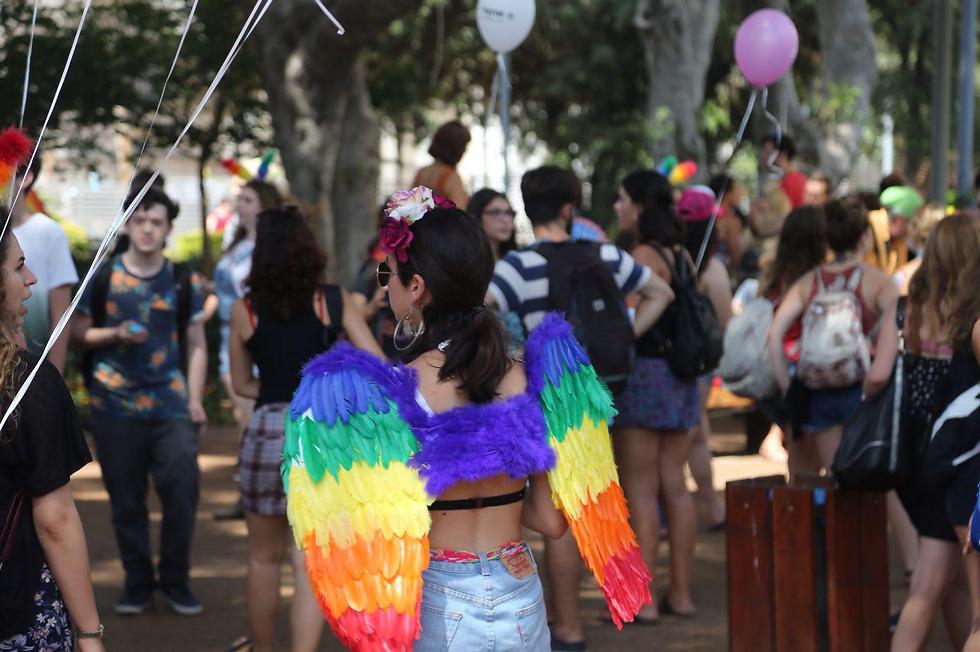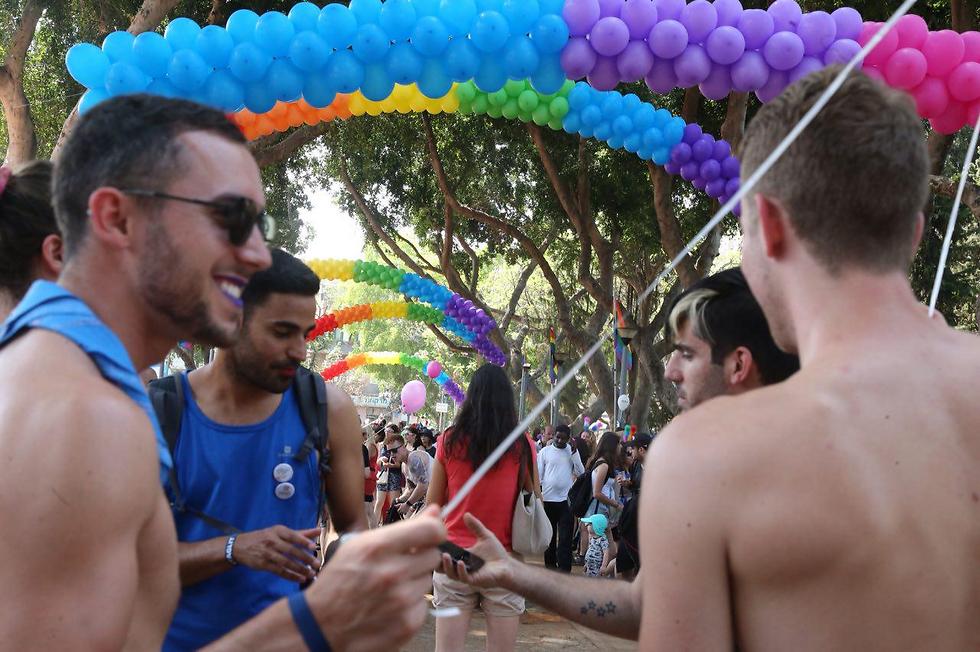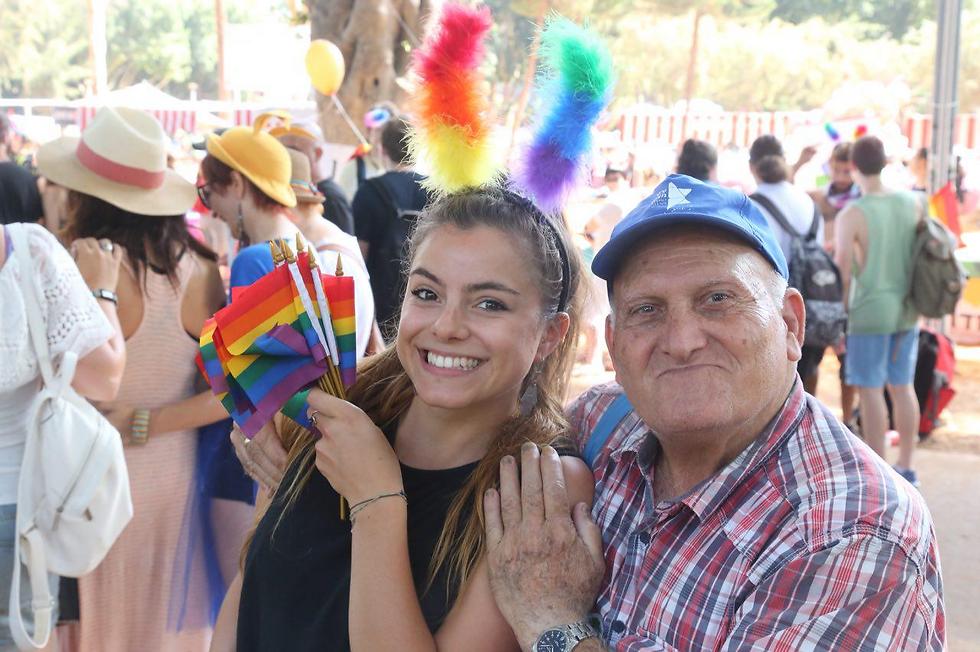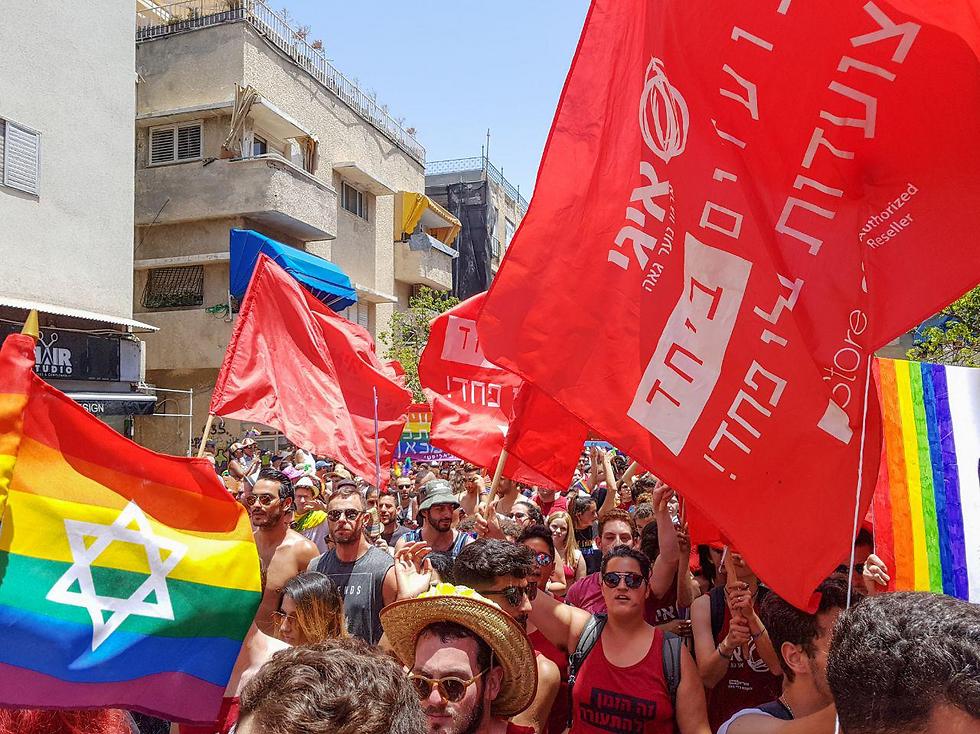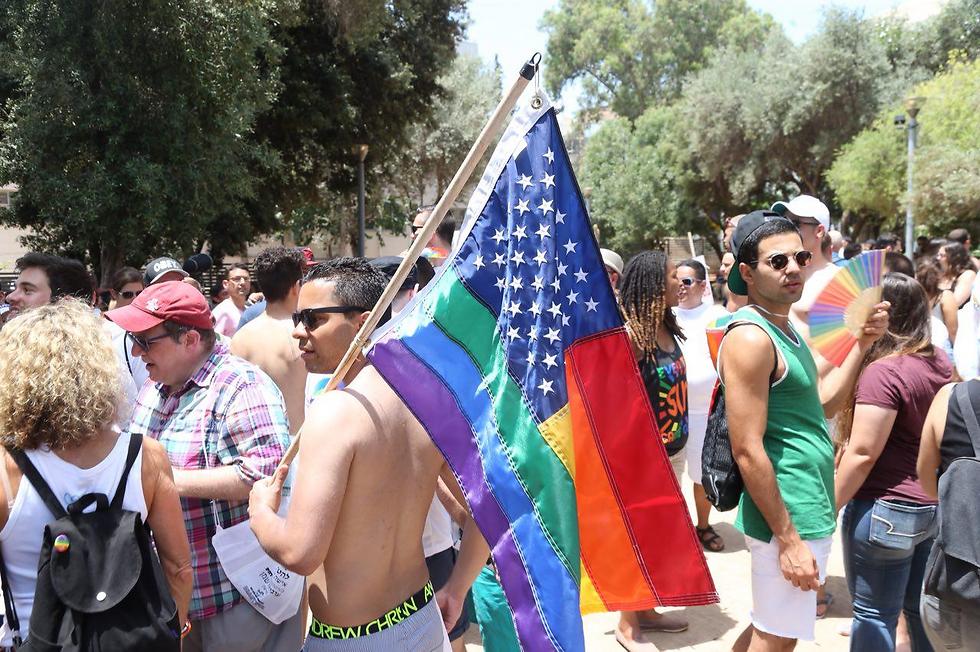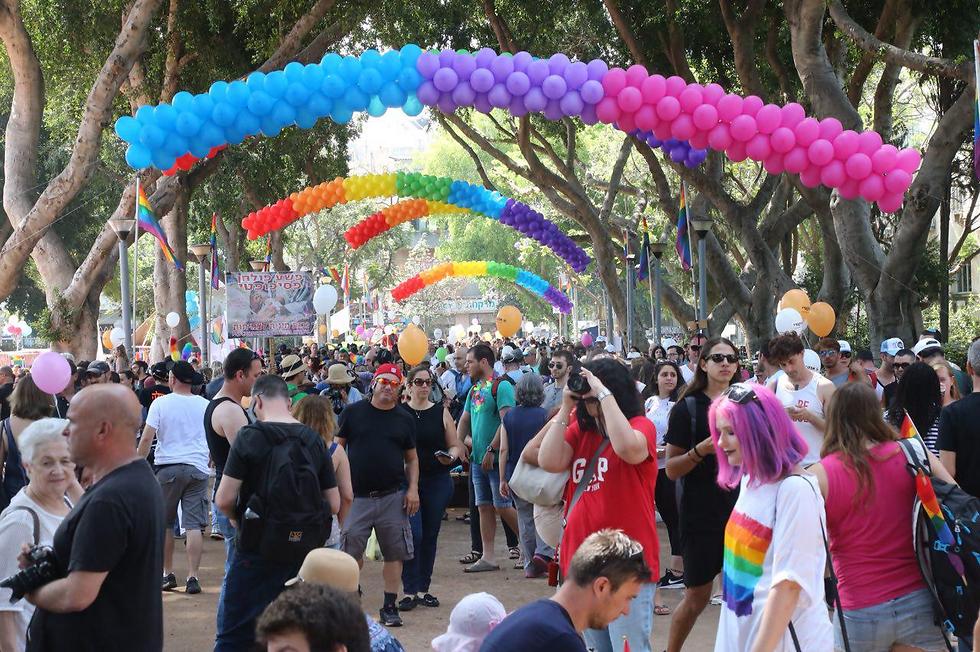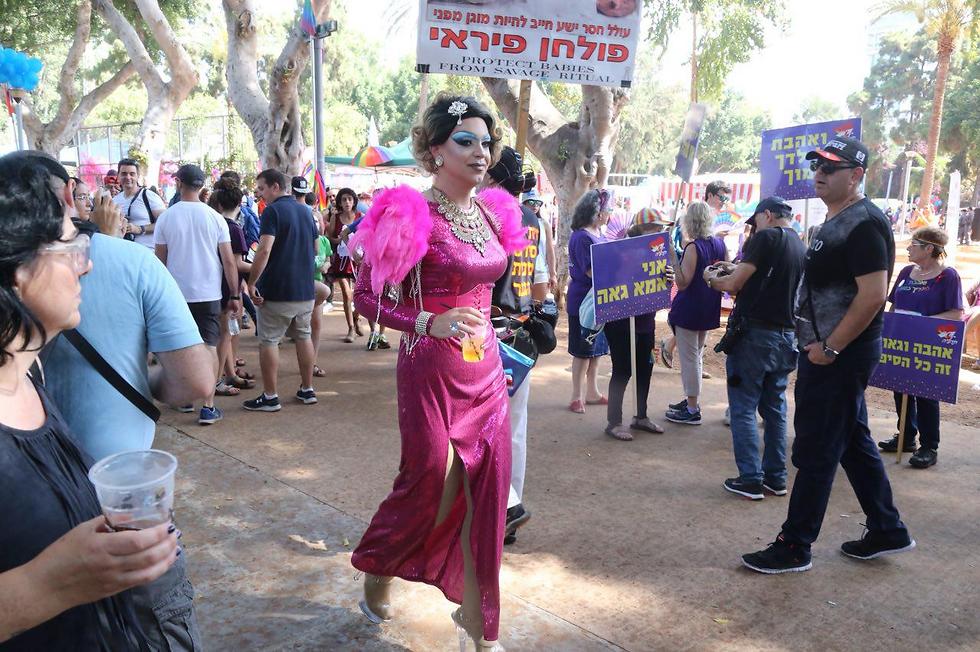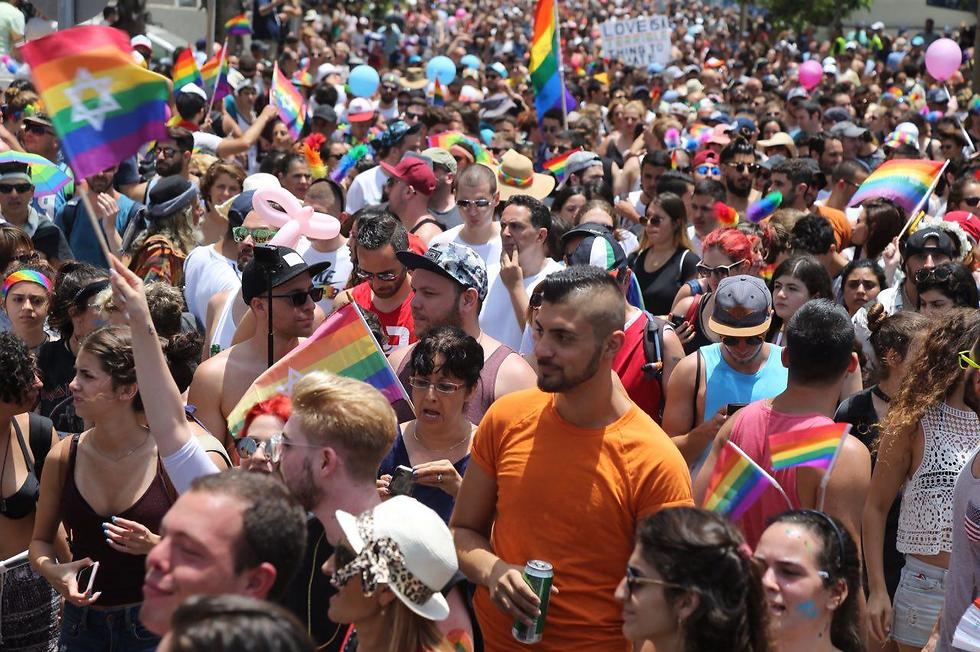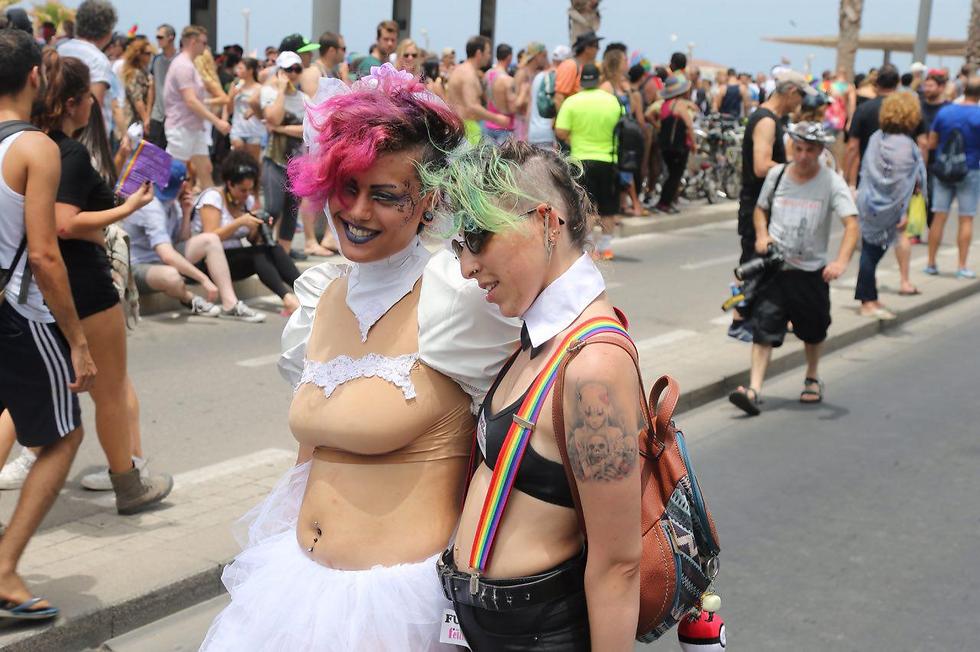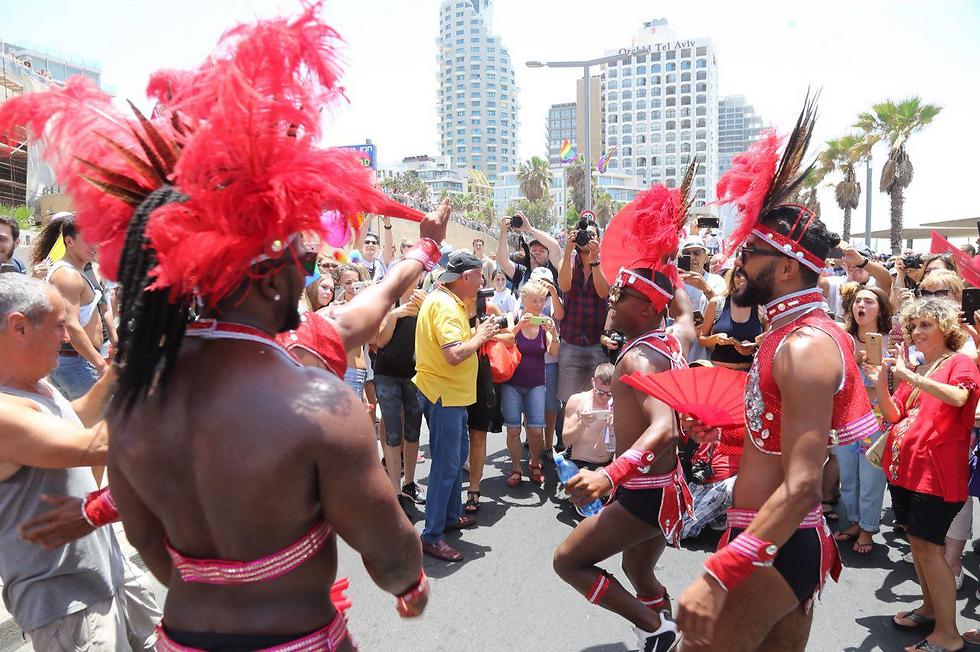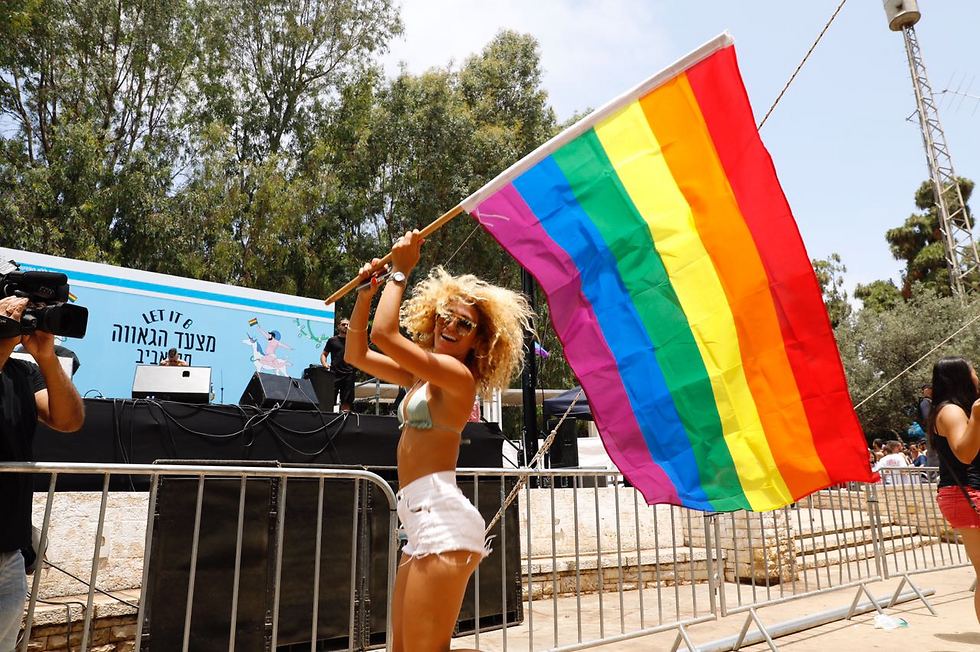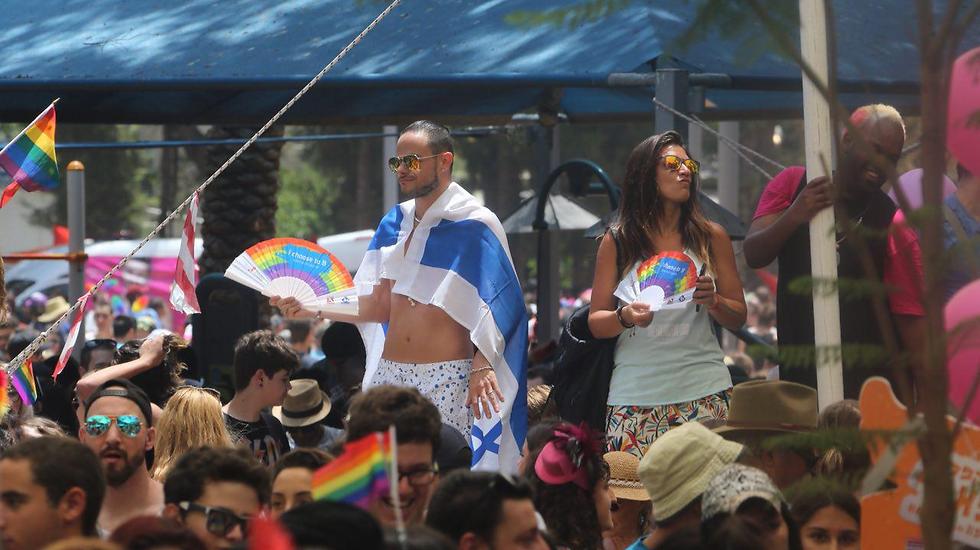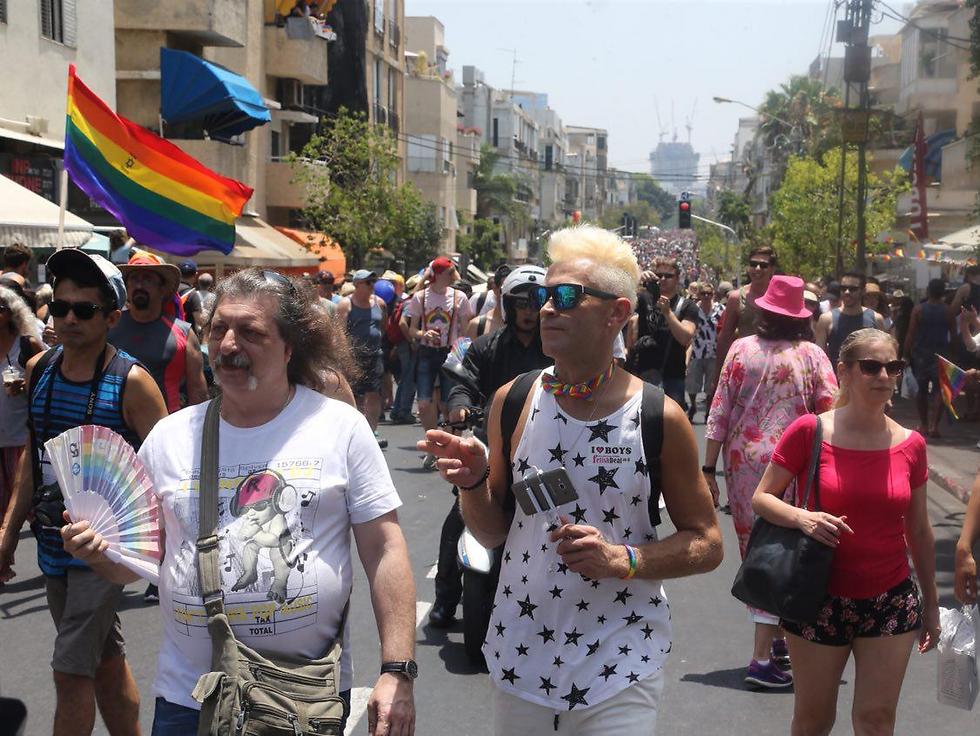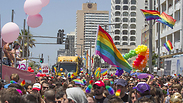
Tel Aviv Mayor Ron Huldai said the parade, while fun, "is an act of defiance in a society that still has a long way to go before all are equal. This is the essence of this march. More and more cities hold parades and address the needs of the (LGBT) community, but there is still a long way to go. We hope the lighthouse that is Tel Aviv will guide others towards recognition that all people are equal."
The parade itself will left at around midday, not before attendees observed a minute of silence in memory of Shira Banki, who was stabbed to death by a Jewish extremist during the 2015 Jerusalem Pride Parade, and in solidarity with the LGBT community in Chechnya, where leader Ramzan Kadyrov has been accused of "gay purge."
Tens of thousands have already joined the parade, with some 200,000 people expected to attend overall, including 30,000 tourists who came to Israel especially for the event.
Marchers started on Bograshov Street and headed west. The parade continues on HaYarkon Street and head north toward Frishman Street. From there, marchers will head west onto the Herbert Samuel Promenade and head south to Charles Clore Park where a massive beach party will commence.
The floats escorting the parade started rolling at 1pm along the promenade, eventually reaching Charles Clore Park, where several concerts will be held.
Performers will include Army of Lovers, Julieta, Shimi Tavori and several interchanging DJs.
Roads in the area are expected to close throughout the parade.
Police officers were instructed not to allow weapons, bicycle and electric bicycle into the parade route. In addition, sharp objects, dangerous toys, fireworks and animals (except for guide dogs) will also not be allowed into the parade area.
While police works to combat any crimes in the parade areas, marchers have been asked to closely guard their possessions and not leave any valuables in their cars.
The head of the Israeli Gay, Lesbian, Bisexual and Transgender Association, Chen Arieli, said, "As I march in the parade, I will be particularly proud of the partners I have, people who work in these organizations every day to make the world a better place, and that is a good reason to be proud in my eyes."
Arieli noted, however, that the road to equality was still a long one. "The parade began as a protest march. On the one hand, we are celebrating having the freedom to be who we are, and on the other hand there are a lot of complexities. The original reasons for the parade have not yet been gone from the world."













